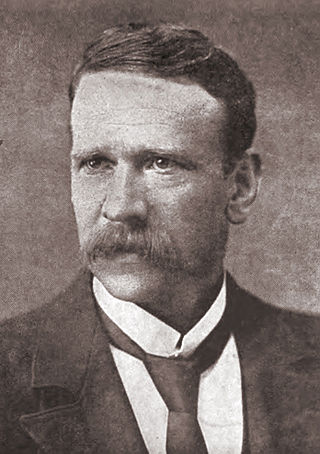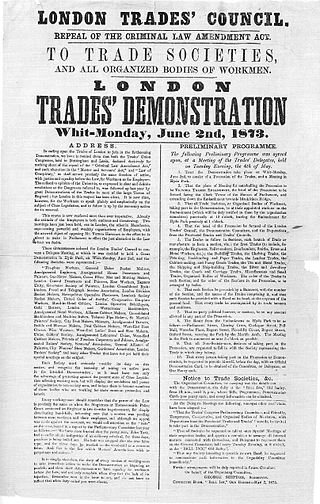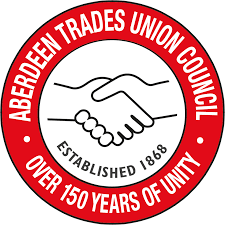Related Research Articles

The Scottish Trades Union Congress (STUC) is the national trade union centre in Scotland. With 40 affiliated unions as of 2020, the STUC represents over 540,000 trade unionists.

The Scottish Labour Party (SLP), also known as the Scottish Parliamentary Labour Party, was formed by Robert Bontine Cunninghame Graham, the first socialist MP in the Parliament of the United Kingdom, who later went on to become the first president of the Scottish National Party, and Keir Hardie, who later became the first leader of the Independent Labour Party and the Labour Party.

Robert Smillie was a Scottish trade unionist and Labour Party politician. He was a leader of the coal miners, and played a central role in moving support from the miners away from the Liberal Party to the Labour Party. He had a firm commitment to socialism as an ideal, and militancy as a tactic.
The 1888 Mid Lanarkshire by-election was a parliamentary by-election held on 27 April 1888 for the House of Commons constituency of Mid Lanarkshire in Scotland.
Robert Chisholm Robertson was a Scottish political activist.
The Organisation of Scottish Labour is a body established under the national rules of the UK Labour Party.
Thomas Robert Threlfall, known as T. R. Threlfall, was a British trade unionist and Liberal-Labour politician.

The London Trades Council was an early labour organisation, uniting London's trade unionists. Its modern successor organisation is the Greater London Association of Trades (Union) Councils
John Stokes was a British trade unionist and political activist.
William Small was a Scottish trade unionist.
Margaret Hardinge Irwin (1858–1940) was a Scottish suffragist and labour activist who held important posts in the trade union movement.
George Carson was a Scottish trade unionist.
The Edinburgh Trade Union Council brings together trade union branches in Edinburgh in Scotland.

The Manchester Trades Union Council brings together trade union branches in Manchester in England.
Duncan Carmichael was a British trade unionist and socialist activist.
Hugh Lyon was a Scottish trade union leader.
Robert Mathieson Small was a Scottish trade unionist and political activist.
Benjamin Howard Shaw was a British labour movement activist.

Aberdeen Trades Union Council (ATUC) is the body made up of affiliated trade union branches and organisations working in the Aberdeen and Aberdeenshire area to promote the interests of workers in the region. The ATUC provides services to affiliated branches on a wide range of industrial, social and community issues and is affiliated to the STUC. It has an office based in Aberdeen, Scotland.
Leeds Trades Council is an organisation bringing together trade unionists in Leeds, in northern England.
References
- 1 2 3 4 5 Archives Hub, "Records of Glasgow District Trades Council, trades council, Glasgow, Scotland"
- ↑ Takao Matsumura, The Labour Aristocracy Revisited: The Victorian Flint Glass Makers, 1850-80, p.124
- ↑ William Kenefick, Red Scotland!: The Rise and Fall of the Radical Left, C. 1872-1932, pp.11, 31
- 1 2 Harry McShane, Centenary brochure, 1858-1958: a hundred years of progress
- ↑ David Howell, British Workers and the Independent Labour Party, 1888-1906, p.150
- ↑ J. J. Smyth, Labour in Glasgow, 1896-1936: Socialism, Suffrage, Sectarianism, p.41
- ↑ Alan Clinton, The Trade Union Rank and File: Trades Councils in Britain, 1900-40, pp.42, 45, 209
- ↑ Alan Clinton, The Trade Union Rank and File: Trades Councils in Britain, 1900-40, p.31
- ↑ Alan Clinton, The Trade Union Rank and File: Trades Councils in Britain, 1900-40, pp.76, 170
- ↑ Alan Clinton, The Trade Union Rank and File: Trades Councils in Britain, 1900-40, p.148